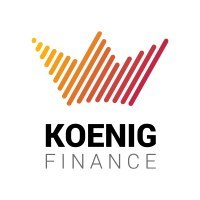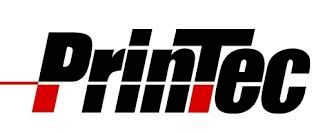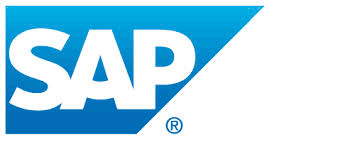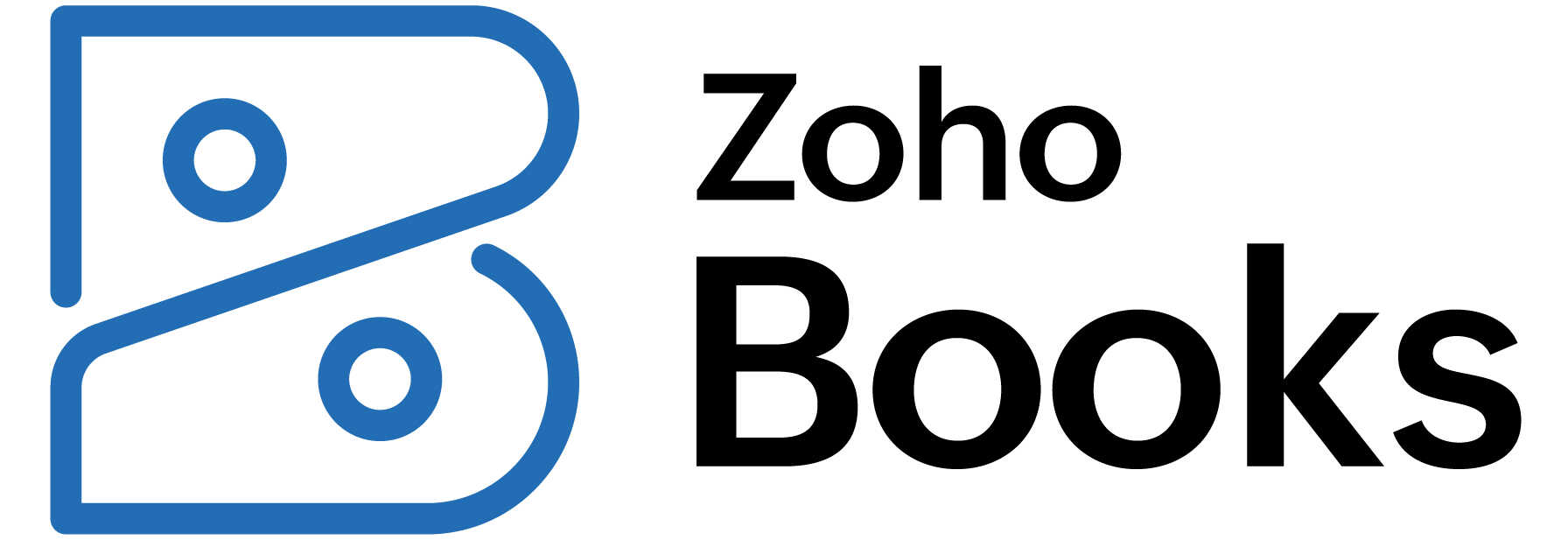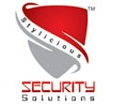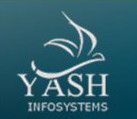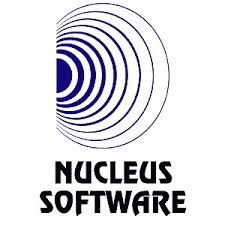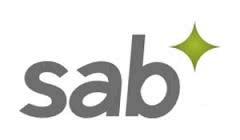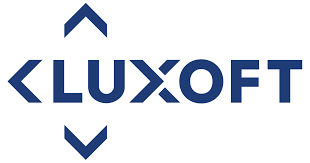What Is Corporate and Retail Banking Software?
One kind of financial technology (fintech) created especially to meet the demands of companies and individual consumers in the banking sector is corporate and retail banking software. Lending, deposits, payments, and other corporate and retail banking services are all effectively managed by banks and financial organizations with the aid of this software.
The capacity of corporate and retail banking software to automate a number of banking procedures, including account creation and loan origination, is one of its primary benefits. This capability helps banking employees save time and effort. By responding more quickly and accurately, this not only boosts productivity but also enhances customer service. This software's strong security measures are another essential feature.
Financial institutions must protect their consumer data and transactions in the age of cyberattacks. Advanced security features like encryption and multi-factor authentication are used by corporate and retail banking software to guard sensitive data and stop unwanted access. Additionally, by enabling centralized administration of all banking procedures, this software enhances decision-making by offering a comprehensive picture of consumer data.
Additionally, it provides customisable dashboards and reporting tools for monitoring and analyzing a range of banking indicators, including client satisfaction and profitability. To offer a complete banking experience, the top corporate and retail banking software should also easily interface with other platforms, including core banking solutions and customer relationship management (CRM) software.
Assessing the software's scalability and adaptability to meet your institution's evolving demands is crucial when thinking about buying corporate and retail banking software. In order to stay up to speed with the constantly changing financial industry, you should also search for software vendors who provide continuous support and updates.
What Are The Recent Trends In Corporate And Retail Banking Software?
increasingly sophisticated and all-inclusive solutions that meet the changing demands of the banking sector have been increasingly prevalent in recent trends in corporate and retail banking software. The adoption of new technologies, shifting consumer expectations, and heightened competition are the main drivers of these changes. It is essential for you as a buyer to comprehend these trends and take them into account when choosing your banking software.
1. Automation And Digitalization: Automation and digitization are two of the main trends in banking software. Banks are choosing software that allows them to automate repetitive work and digitize their operations. As a result, they may increase productivity, cut expenses, and offer a flawless client experience. Automated loan processing, digital document management, and online account opening are becoming commonplace in banking software.
2. Solutions Focused On The Customer: Customers today want a more customized and convenient experience due to the growth of digital banking. Customer-focused banking software systems with features like self-service portals, tailored marketing, and predictive analytics have been developed as a result. Understanding and satisfying each customer's unique tastes and wants is the main goal of these solutions.
3. Fintech Integration: In recent years, banks and fintech startups have increasingly been working together. Innovative services like robo-advisors, real-time payments, and mobile wallets are made possible by banking software that integrates with fintech solutions. This helps banks maintain their competitiveness in the market while also improving the consumer experience.
4. AI And Data Analytics: Bank operations are changing as a result of data analytics and artificial intelligence (AI). Software programs with strong data analytics features can handle massive amounts of data, offer insights in real time, and aid in decision-making. Because they can handle basic client inquiries and duties, AI-powered tools like chatbots and virtual assistants are also becoming more and more popular. This allows bank employees to focus on more difficult work.
5. Put Security And Compliance: First Security and compliance are now crucial factors in banking software due to the increase in cyberthreats and regulatory regulations. Building software with advanced security features, such as encryption, multi-factor authentication, and biometric identification, has become more popular in recent years. Banking software is also starting to provide compliance management functions to guarantee regulatory compliance.
Benefits Of Using Corporate and Retail Banking Software
Corporate and retail banking software is a vital tool in today's digital banking environment since it provides financial firms with a host of advantages. This robust software is a great asset for any bank or financial organization since it is made to optimize processes, boost productivity, and improve client satisfaction. The numerous advantages of utilizing corporate and retail banking software will be examined in this buyer's guide to assist you in selecting the best option for your company.
1. Streamlined Processes: The capacity of corporate and retail banking software to streamline processes is one of its main advantages. By automating manual procedures, this software lessens the workload for bank employees and lowers the possibility of human error. Banking software makes it simple to accomplish a number of functions, including account opening, loan approvals, and transaction processing, which increases operational efficiency and reduces costs.
2. Improved Customer Experience: Customers need a smooth and easy banking experience in the current digital era. Online banking, mobile banking, and self-service choices are just a few of the services that corporate and retail banking software provides, enabling users to access their accounts and conduct transactions from any location at any time. This gives you a competitive edge in the market by improving client satisfaction, loyalty, and retention.
3. Real-Time Insights: In order for any financial institution to make wise judgments, data monitoring and analysis are essential. Banking software helps banks identify current and potential risks and make data-driven decisions by giving them real-time insights into consumer behavior, market trends, and business performance. Banks can stay ahead of the competition and create successful strategies if they have fast and reliable information at their disposal.
4. Compliance And Security: Banking software successfully handles compliance and security, two important concerns for financial institutions. This program is made to abide by industry rules, guaranteeing that every transaction complies with moral and legal requirements. It also provides strong security features like fraud detection, multi-factor authentication, and encryption, which reduce the danger of cyberattacks and safeguard private client information.
5. Cost Savings: Financial organizations can save a lot of money by implementing corporate and retail banking software. Banks can lower operating expenses and reallocate staff to revenue-generating activities by automating tedious operations. Furthermore, banking software can help prevent losses and enhance the organization's overall financial health by increasing efficiency and lowering risk.
Important Factors To Consider While Purchasing Corporate And Retail Banking Software?
When searching for the best corporate and retail banking software, it's important to take into account a number of criteria that will ultimately affect how well your investment performs. The features and capabilities of the program, the current market trends, and your company's needs must all be carefully considered when selecting the best software. Here are some important things to think about when buying corporate and retail banking software to help you make an informed choice.
1. Integration Capabilities: The software's ability to integrate with your current systems is one of the most important considerations. Your operations can be made more efficient and streamlined with a smooth connectivity between your banking software and other programs, like accounting and human resources.
2. Security Features: Security is a top priority in the banking sector. Selecting software with strong security features, such data encryption, multi-factor authentication, and regular security upgrades, is essential. This will assist secure your company from such cyberattacks and protect the private data of your clients.
3. Scalability: Selecting software that can adapt to your changing needs is essential because your company may expand and change over time. Examine the software's scalability to see if it can accommodate more users, transactions, and data without experiencing any impact on its functionality.
4. User-Friendliness: Although design and user experience aren't given much thought in the banking sector, they have a big impact on staff happiness and software uptake. To lower the learning curve and boost productivity, pick software with an easy-to-use interface and simple navigation. 5. Customization possibilities: It's critical to select software that provides customization choices because every firm has different procedures and needs. This will enable you to easily incorporate the program into your operations and customize it to your own requirements.
6. Customer Service: Dependable customer service is essential in the event of any technical problems or inquiries. Seek out software providers who have a committed staff to help with any issues that may come up and who give 24/7 customer assistance.
7. Cost: Finally, think about how much the software costs and if it fits into your budget. Remember that the most costly software might not always be the best choice because it should be in line with the value it offers and have a strong return on investment. When buying corporate and retail banking software, you can make sure that your choice is well-informed and in line with your company's objectives by taking these considerations into account. Before making your final choice, don't forget to perform extensive research, evaluate several software solutions, and don't be afraid to get references and demos.
Important Factors To Consider While Purchasing Corporate And Retail Banking Software?
There are a few essential elements to consider when buying corporate and retail banking software to make sure it fits your company's unique requirements.
1. Strong Security: Since banking deals with private financial information, security need to be a primary concern. To keep ahead of possible cyberthreats, look for software that provides data encryption, multi-factor authentication, and frequent upgrades.
2. Flexible Integration: To improve productivity and optimize procedures, the software should be able to interface with both your current systems and other programs, such accounting or CRM software.
3. Comprehensive Reporting: Monitoring performance, spotting trends, and coming to educated conclusions all depend on the capacity to create reports that are both configurable and comprehensive. Choose software that allows you to export data in several formats and provides a large number of reporting possibilities.
4. Automated Processes: Repetitive and manual procedures can cause delays and raise the possibility of mistakes. Seek out technologies that can automate processes like creating statements, opening accounts, and processing loans.
5. User-Friendly Interface: Even for non-technical staff, the program should be easy to use and have an intuitive interface. This will boost adoption in your company and lower the learning curve.
6. Customer Relationship Management: An essential component of retail banking, CRM features enable efficient handling of client interactions and enhance the general client experience.
7. Scalability: Your banking software should be able to grow with your company. As your company grows, look for software that can handle more users, transactions, and additional features.
8. Compliance And Regulation: The banking sector is subject to strict regulations, and breaking them can have serious repercussions. Seek out software that complies with industry standards and provides tools to support compliance, like record-keeping and audit trails. When assessing corporate and retail banking software, keep these important characteristics in mind to make sure you choose the best option for your company's requirements and achieve long-term success.
Why Do Businesses Need Corporate and Retail Banking Software?
There are several reasons why businesses require corporate and retail banking software. Above all, this software saves organizations time and money by automating and streamlining crucial financial procedures. This include processing payments, creating financial reports, and overseeing bank reconciliations. Corporate and retail banking software guarantees accuracy and efficiency in financial processes by doing away with manual chores and lowering the possibility of human error.
Additionally, this software gives companies access to their financial data in real time. Better decision-making is made possible because companies are able to evaluate their financial performance and develop strategic goals using up-to-date, precise data. Additionally, it gives companies a clear picture of their cash flow, which enables them to plan ahead and control income and expenses.
Additionally, sophisticated security mechanisms are available in corporate and retail banking software to safeguard the financial information of firms. Businesses must have strong security measures in place to protect their sensitive financial data in light of the growing cyberthreats. Additionally, this software makes it possible for companies and their financial partners to collaborate and communicate easily.
It makes it possible to transfer data and documents electronically, doing away with the necessity for paper records and lowering the possibility of mistakes. Finally, because corporate and retail banking software is so adaptable, companies can customize it to meet their unique demands. As a result, companies can select features and functionalities that complement their particular financial procedures, guaranteeing that the software integrates easily into their daily operations.
How Much Time Is Required To Implement Corporate And Retail Banking Software?
The size of the financial institution, the intricacy of its processes, and the particular features and customisation needed all affect how long it takes to develop corporate and retail banking software. The implementation procedure, however, often takes six months to two years. Analyzing the institution's needs and requirements in-depth is the first stage in putting this kind of software into use.
Determining the desired features and functions, identifying pain areas, and evaluating their current systems may all be part of this. Following the completion of this preliminary evaluation, the software provider will collaborate with the organization to create a thorough implementation strategy. This plan will specify the timetable, duties, and obligations of each party.
Setting up the software and connecting it with the organization's current systems, including CRM platforms and core banking, constitute the next phase. Depending on how complicated the integration process is, this step could take a few weeks to several months. Following the software's setup, the vendor will guarantee that the institution's employees are knowledgeable about the new system and capable of using it efficiently by offering training and support.
The software's complexity and the staff's talents at the organization will determine how long the training session lasts. The last step of the installation process is testing and fine-tuning the system to make sure it satisfies the institution's unique requirements once the software has been fully integrated and the staff has received training. This could need several testing cycles and input from several departments.
All things considered, the process of implementing corporate and retail banking software is difficult and time-consuming, requiring cooperation between the software vendor and the institution. Effective communication, a well defined project plan, and committed resources from both sides are necessary for a successful and seamless implementation.
What Is The Level Of Customization Available In Corporate And Retail Banking Software?
The degree of customisation provided by various suppliers should be taken into account when selecting the best banking software for your business or retail requirements. Customization enables businesses to adapt the software to their unique requirements, increasing productivity and customer happiness, even if the majority of banking software solutions come with a standard set of functions.
Depending on the platform and vendor, corporate and retail banking software can offer varying degrees of customisation. Three levels of customisation are often distinguished: basic, moderate, and advanced. The ability to alter the software's interface, including adding unique logos and branding, altering color schemes, and moving menus, is usually considered basic customisation.
The majority of banking software programs typically offer this degree of flexibility, which doesn't call for extra costs or technical assistance. More extensive alterations to the software's functioning are possible with intermediate customisation, which goes beyond aesthetic adjustments. This covers functions like interacting with other software systems, automating specific processes, and building unique workflows.
While some providers could charge extra for this level of customisation, others might provide it in their basic plan. Advanced customization offers businesses with more specialized and distinct demands the greatest degree of flexibility. In order to satisfy the needs of the business, this degree of customization can entail developing completely new software features or modules.
Advanced customization is usually more expensive and frequently calls for the assistance of the provider's development staff. The needs of your business should be carefully taken into account when comparing the degree of customisation that various banking software suppliers offer. For some organizations, basic customization might be enough, but others might need more sophisticated customization choices and more powerful features.
It is also important to remember that, even while extensive customization could be more expensive, there may be substantial long-term advantages in terms of productivity and client satisfaction.
Which Industries Can Benefit The Most From Corporate And Retail Banking Software?
In the current digital environment, corporate and retail banking software has emerged as a crucial instrument for financial organizations. This software has revolutionized a number of sectors due to the growing need for smooth and effective banking services. The industries that stand to gain the most from this software will be covered in this buyer's guide.
1. Banking And Finance Industry: Corporate and Retail Banking Software is mostly made for financial institutions, as the name implies. It serves the requirements of credit unions, retail banks, commercial banks, and other financial organizations. By streamlining their everyday tasks, such as handling transactions and customer relations, the software helps them provide their customers with better services.
2. Retail Industry: Whether it's sales, purchases, or payments, retail businesses frequently deal with a huge volume of transactions every day. These companies may effectively and safely handle their everyday operations with the help of corporate and retail banking software. Additionally, it enables them to provide their clients with a variety of payment options, including credit card payments, smartphone payments, and internet banking.
3. Manufacturing Industry: To keep their businesses operating, manufacturers frequently have to interact with a variety of suppliers, distributors, and vendors. They can track their inventory, pay their suppliers, and efficiently manage their supply chain with the use of corporate and retail banking software. This aids in preventing manufacturing delays or shortages brought on by monetary concerns.
4. E-commerce Sector: The e-commerce sector has experienced rapid expansion in recent years, necessitating a safe and dependable payment system. Corporate and Retail Banking Software ensures a smooth and easy checkout process for their customers by providing e-commerce enterprises with a variety of payment alternatives, including credit card payments, smartphone payments, and online banking.
5. Healthcare Sector: Since the healthcare sector handles private and sensitive data, security and privacy are essential considerations. Healthcare organizations may safely handle payments from insurance companies and patients by using corporate and retail banking software. They are also capable of effectively managing their billing procedures and financial data.
Conclusion
In conclusion, any financial institution's performance depends on its choice of corporate and retail banking software. In addition to fulfilling the organization's present requirements, the software should be scalable in the future. To guarantee a flawless banking experience for both corporate and retail clients, it is crucial to carefully assess the features, security, and integrations provided by various software providers.
In order to collect diverse viewpoints and determine the best course of action, it is also essential to include important stakeholders from different departments in the decision-making process. When completing the purchase, it's also critical to consider elements like price, implementation time, and customer support. Purchasing dependable and effective banking software can significantly raise operational effectiveness, enhance client happiness, and eventually increase profitability.
Therefore, financial institutions can choose the best corporate and retail banking software for their particular needs by carefully weighing the variables covered in this buyer's guide. We hope that this guide has given you useful information and will help you choose the best software to help your banking business succeed.

